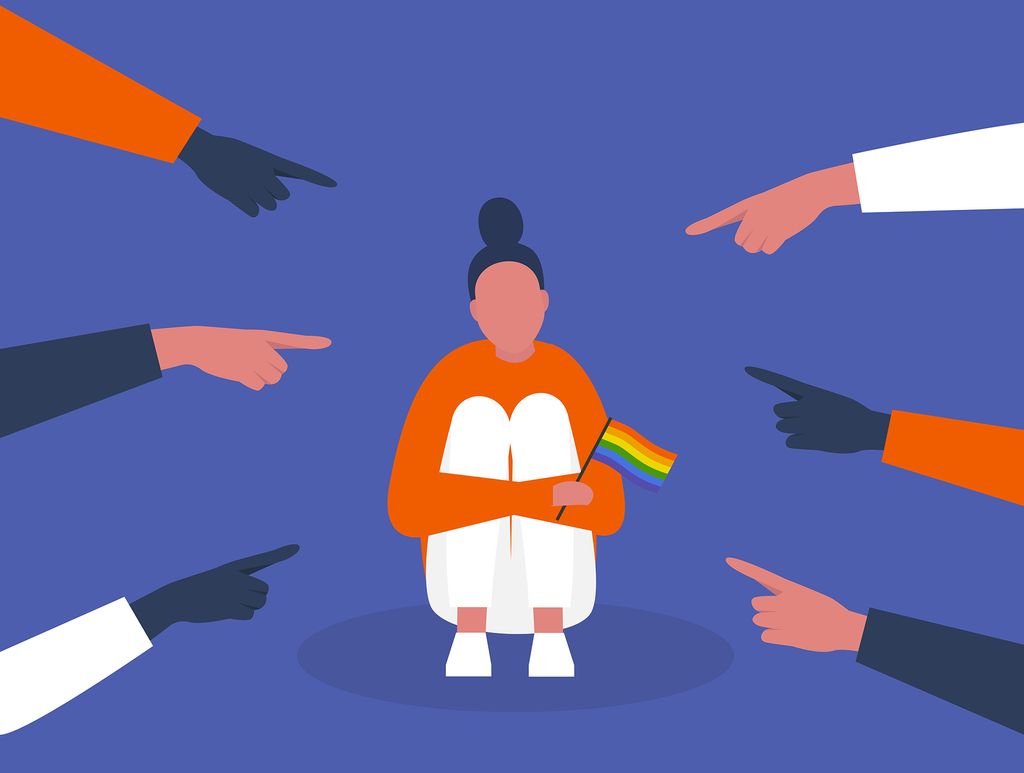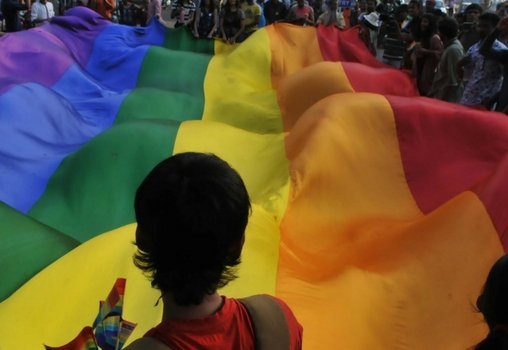Hey,
When you enter your early twenties, you will feel as if you’re stuck in many ways. As we grow up, we also learn and shape our own ideas of love, family, and friendship, all of which we cultivate as safe spaces. These words might not have been there when you needed them, but they are still valid.
Toxicity of familial spaces and shame
As a closeted queer person who knew who he was since class 6th, the idea of engaging with family was always tricky. There was an abusive environment at one point, which led to toxic thoughts of love. On the other hand, there was the quintessential fear – if my family came to know of my sexuality, they would just leave me, so it’s not worth it to get close to them in the first place. While this led to emotionally closing off from others, the family still is a site of co-dependency. There were moments when I would feel close to them, and then, I would want to run away at other times.
It is difficult to feel loved in a space when there is internalised shame, stigma and negative self-perception – all of which lead to reduced mental health. Almost every queer person I have known has wanted to run away from home. Although it isn’t that easy, sometimes, we run away from our homes at an emotional level.
We stay in the space, physically, but our imaginations delve into that perfect utopia of love, friendship, and family as we migrate emotionally. This made me look for love extensively in my adulthood, trying to make up for the absence of it during my childhood.

Normative, non-normative friendships and violence
Adult relationships and friendships are different. They are bound by both non-normative and normative ideas. Non-normative because unlike family, they are not celebrated pompously through hetero-patriarchal festivals, which always made me feel more alone. I tried to fit within the conventions, but it didn’t feel worth it to dress up in colourful clothes, pretend you love each other and be at each other’s neck the very next day. I know conflict isn’t that bad, but normative space of family have normalised contentions and unacknowledged queer identities.
Adult friendships and relationships are normative in the sense that they are still in the shackles of morality, decency, and obligations. They do have their moments of celebrations due to the neo-liberal spaces where we perform friendships. You need to act in a specific manner with your friends and partners to justify the labels of friends and partners. There are structures and ideologies still in place constructing the normativity of everyday friendships.
I found the answer in rejecting the ‘family’ label altogether and never applying the same to queer friends again. It’s not about family. It’s about friends – revolutionary friendships, queerplatonic friendships, friendships where love can prosper. When I see TV shows like Modern Family or Schitt’s Creek, I feel the wholesomeness of the happy gay life
As queer people, we always dream of an utopia where we stay without our chosen family, navigating this heteronormative world. Although that utopia is indeed possible, it’s also a long way, and it’s through breaking out of normative standards. Failure is going to be a part of it, queer failure will be a large part of our lives, and it is spectacular. I did not realise this earlier.

To make way for ‘chosen family’ as soon as I moved away from home, I was scared of confrontation, scared that it would lead to violence and abuse as it did back at home. I’m still looking for an alternative space to call family, one that would have all the love and affection that my home could not preserve. That search is violent.
A friend recently told me about the violence we commit while we care for others. In my pursuit of an alternative familial space, I might end up creating another family space that, by norm, is violent. I might end up expecting too much from people who might also be figuring their own idea of love and friendships.
Also read: Locating Queer Vocabulary In Literature & Cinema
A sense of belonging: It’s not about family, it’s about friends
I found the answer in rejecting the ‘family’ label altogether and never applying the same to queer friends again. It’s not about family. It’s about friends – revolutionary friendships, queerplatonic friendships, friendships where love can prosper. When I see TV shows like Modern Family or Schitt’s Creek, I feel the wholesomeness of the happy gay life.
I also realise that’s a distant dream for me. But even though it’s wholesome; it mimics heteronormativity which I’ve learned is inherently violent. I wish to have that perfect family life, and I want to deconstruct and reconstruct the whole idea of family itself. But what is the need when you already do it every single day with your friends?
Ultimately, finding a sense of belongingness is more about inventing non-normative spaces for love, desire, and friendships. It’s more about struggling with ideas, setting boundaries, breaking norms, and acknowledging the violence that we unknowingly commit on ourselves and others
The idea that love exists singularly is horribly wrong. It isn’t just about being monogamous or polyamorous. It’s about how we see love and desire, the ways we commit violence on ourselves when we limit ourselves to fit the way we love within boxes. I’m not stuck with whatever I had; I’m still moving forward.
On some days, it feels like I’m running away, desperately trying to find that new, definite space of flexibility, love, and trust. And I am still moving towards that, navigating through the friendships and relationships I have cultivated so far.

When I read about queerplatonic relationships, I was in complete awe because we need them so much. Loving our friends is already the most revolutionary thing we do. This understanding of love, need, and expectations that I can find through queerplatonic relationships is my idea of belonging.
This space is rifled with politics but holds space for acknowledgement and learning. The idea of belonging together in a shared space is dynamic and ever-changing. The search for a ‘definite space’ that could replace family is alright. Still, it’s within the shackles of the normative idea of family, within a rigid binary of violence.
Ultimately, finding a sense of belongingness is more about inventing non-normative spaces for love, desire, and friendships. It’s more about struggling with ideas, setting boundaries, breaking norms, and acknowledging the violence that we unknowingly commit on ourselves and others.
As an ever-evolving journey, it’s about rejection of the regressive myth of the happy family and acceptance of friendships as revolutionary forms of love.
With love,
Rajeev
Also read: Why Queerplatonic Relationships Are Important For Queer People




